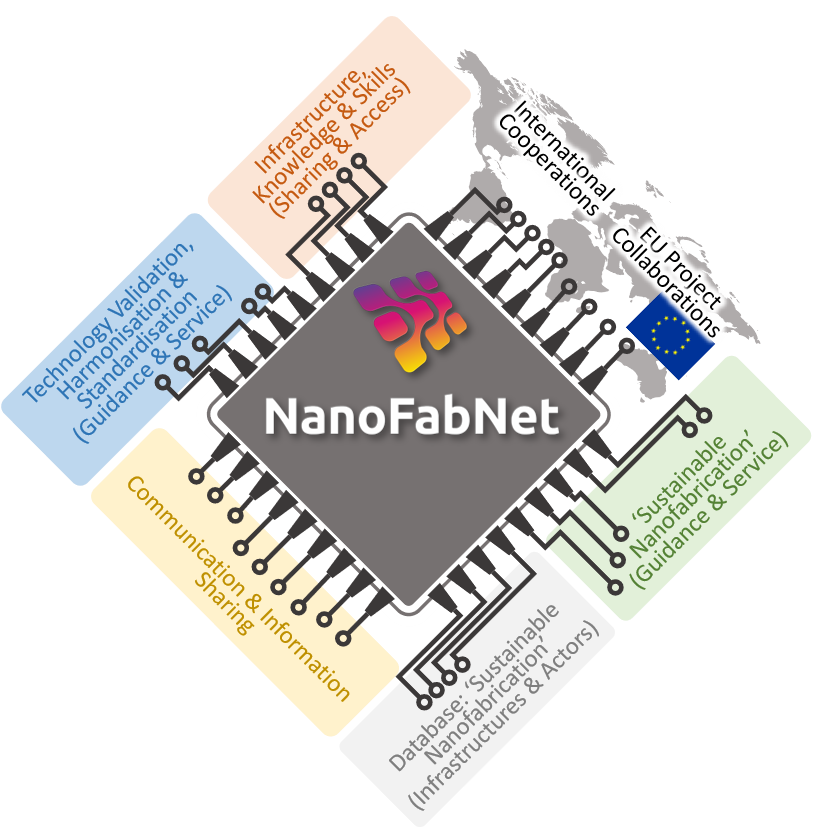
Validation, Harmonisation & Standardisation Action Plan for sustainable Nanofabrication
The NanoFabNet has launched an Action Plan for the Validation, Harmonisation & Standardisation of sustainable Nanofabrication.
The Action Plan was developed as a follow-up to the detailed analysis of the challenges posed by any validation, harmonisation and standardisation efforts in sustainable nanofabrication, as given in the previous NanoFabNet report Challenges & Opportunities in the Validation, Harmonisation & Standardisation of industrial-scale nanofabrication, published in July 2021.
The plan defines the NanoFabNet Vision regarding future harmonisation, validation, and standardisation activities. Furthermore, it points out those issues that need to be addressed to establish and maintain a productive, collaborative community in the highly interdisciplinary field of ‘sustainable nanofabrication’. The report furthermore suggests a timeline in which the issues should be addressed (i.e. short-, medium-, and long-term) and makes recommendations about the specific activities that different stakeholders should take in the field of sustainable nanofabrication; specific recommendations are provided to the NanoFabNet Hub, in that the relevant issues will be readily incorporated into the ‘NanoFabNet 5-Years-Strategy’, to form a central part of the offerings and services of the NanoFabNet Hub to the community of sustainable nanofabrication.

The NanoFabNet aims to bring together the wider communities active in any aspects of ‘sustainable nanofabrication’, by providing them with a space in which a diverse range of interdisciplinary collaborations can be formed; in doing so, it identified six main fields that the NanoFabNet Hub needs to address through services and activities (i.e. NanoFabNet Service & Activity Fields (SAFs)):
- Communication & Information Sharing;
- Technology Validation, Harmonisation & Standardisation;
- Infrastructure, Knowledge & Skills; and
- International Cooperations & Collaborations (incl. collaborations with EU-funded projects).
The Action Plan provides a map and recommendations for the time-critical tackling of issues pertaining to the technical validation, harmonisation and standardisation of sustainable nanofabrication processes and products, in order to guarantee their adoption into high-tech R&I and industrial manufacturing processes.

